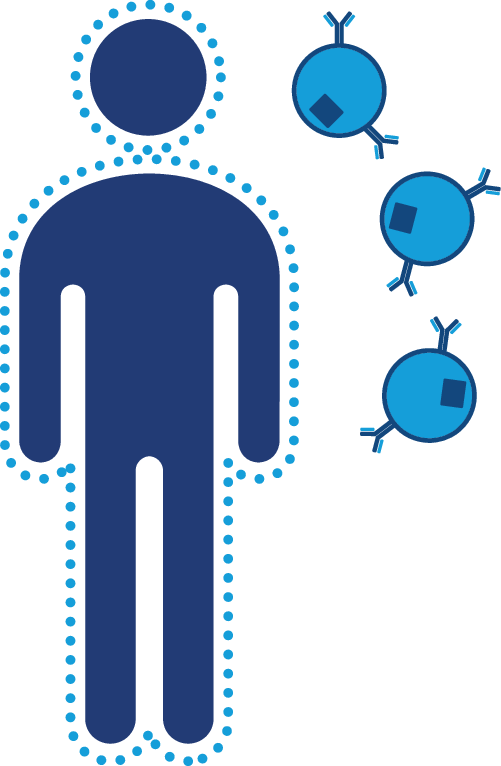Through effective vaccination programmes, we have seen a great reduction in disease burden, with vaccines saving up to 2-3 million lives every year.[1] It remains evermore important that we ensure the uptake of vaccination continues, to allow many more lives to be saved.
Vaccination is one of the most successful public health interventions.[1] It allows the immune system to develop protection against certain illnesses by exposing the body to antigens (a substance foreign to the human body that induces an immune response) which mimic (components of) a pathogen (a bacterium, virus, or other disease-causing microorganism), but does not cause severe disease.[2],[3],[4]
The immune system remembers the antigens/pathogen
The immune system produces memory cells which remember the antigens/pathogen. In the future, these cells will recognise the real pathogen and prevent you from getting seriously ill.[5]

As a result of exposure to both natural infection and vaccines, memory cells are created. Memory cells ensure that the immune system recognises the pathogen during a future (real) infection, and responds faster. In this way, the immune system is primed to fight off the infection before you get seriously ill.[2],[3],[4]
Vaccines. With the exception of safe water, no other modality, not even antibiotics, has had such a major effect on mortality reduction.[6]
Susan & Stanely Plotkin
FOR MORE INFORMATION ABOUT VACCINATION, PLEASE SPEAK TO YOUR DOCTOR.
Follow Us
References
[1] World Health Organization. Immunization. Available at: www.who.int/news-room/facts-in-pictures/detail/immunization. Accessed: December 2022.
[2] Understanding how vaccines work. Available at: https://www.cdc.gov/vaccines/hcp/conversations/understanding-vacc-work.html. Accessed: December 2022.
[3] Live Science. How Do Vaccines Work? Available at: https://www.livescience.com/32617-how-do-vaccines-work.html. Accessed: December 2022.
[4] Children's Hospital of Philadelphia. Making Vaccines: How Are Vaccines Made? Available at: https://www.chop.edu/centers-programs/vaccine-education-center/making-vaccines/how-are-vaccines-made. Accessed: December 2022.
[5] Mak T, et al. Chapter 1: Introduction to the Immune Response. Academic Cell. 2014: 3-20.
[6] Plotkin S L,Plotkin S A.A short history of vaccination. In: Plotkin S, Orenstein W, Offit PA. Vaccines. 5th edition. Page 1. Philadelphia: Saunders, 2008.
CP-267660



 Download The Infographic
Download The Infographic